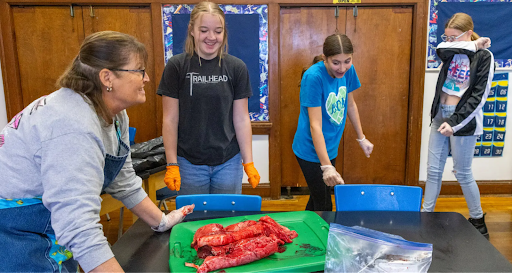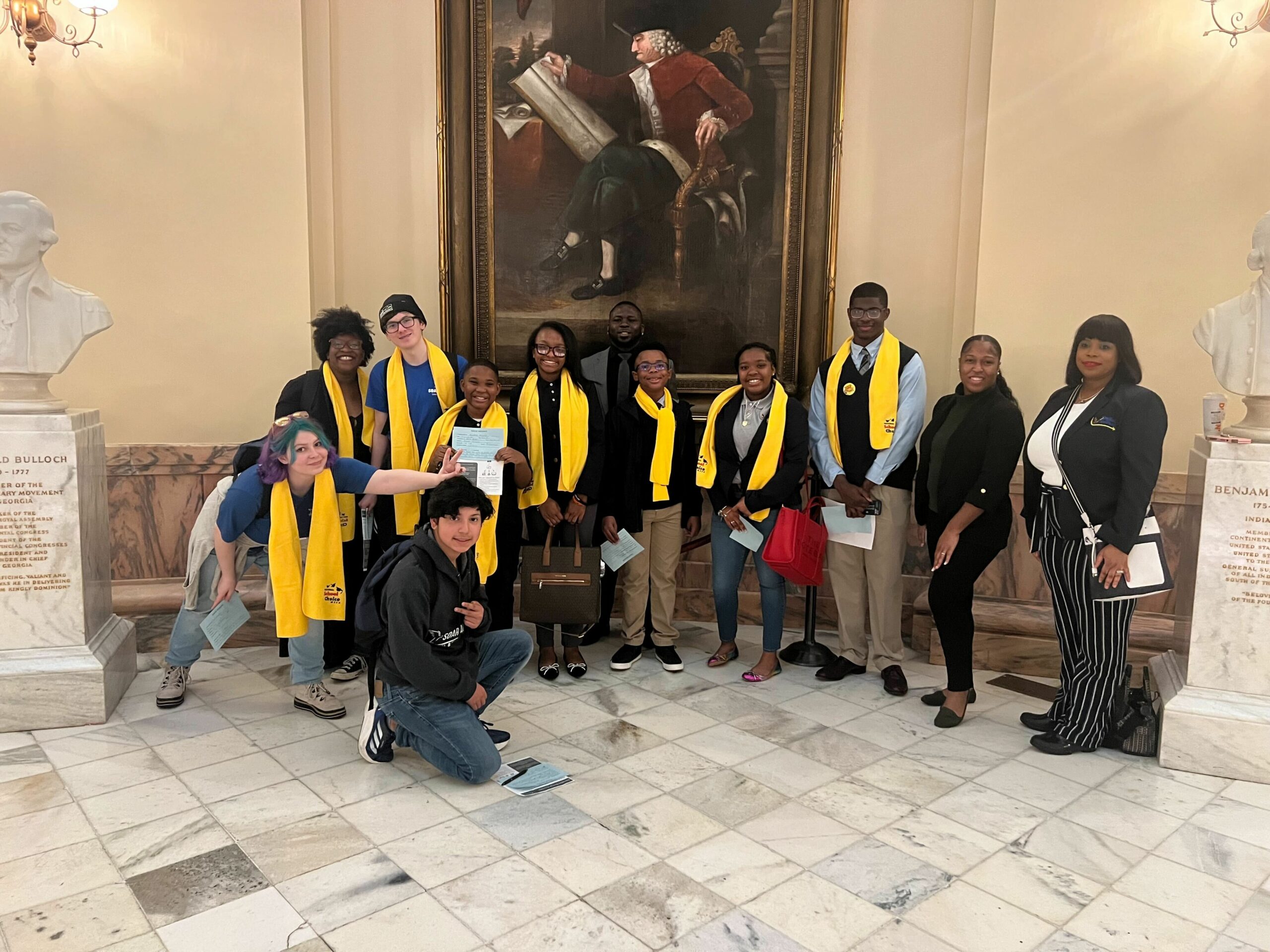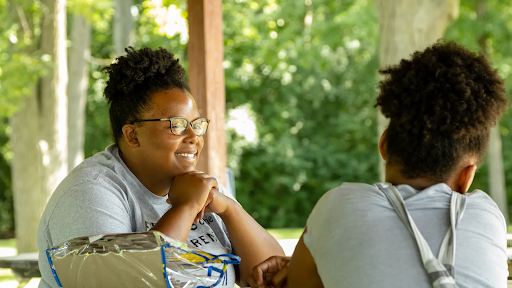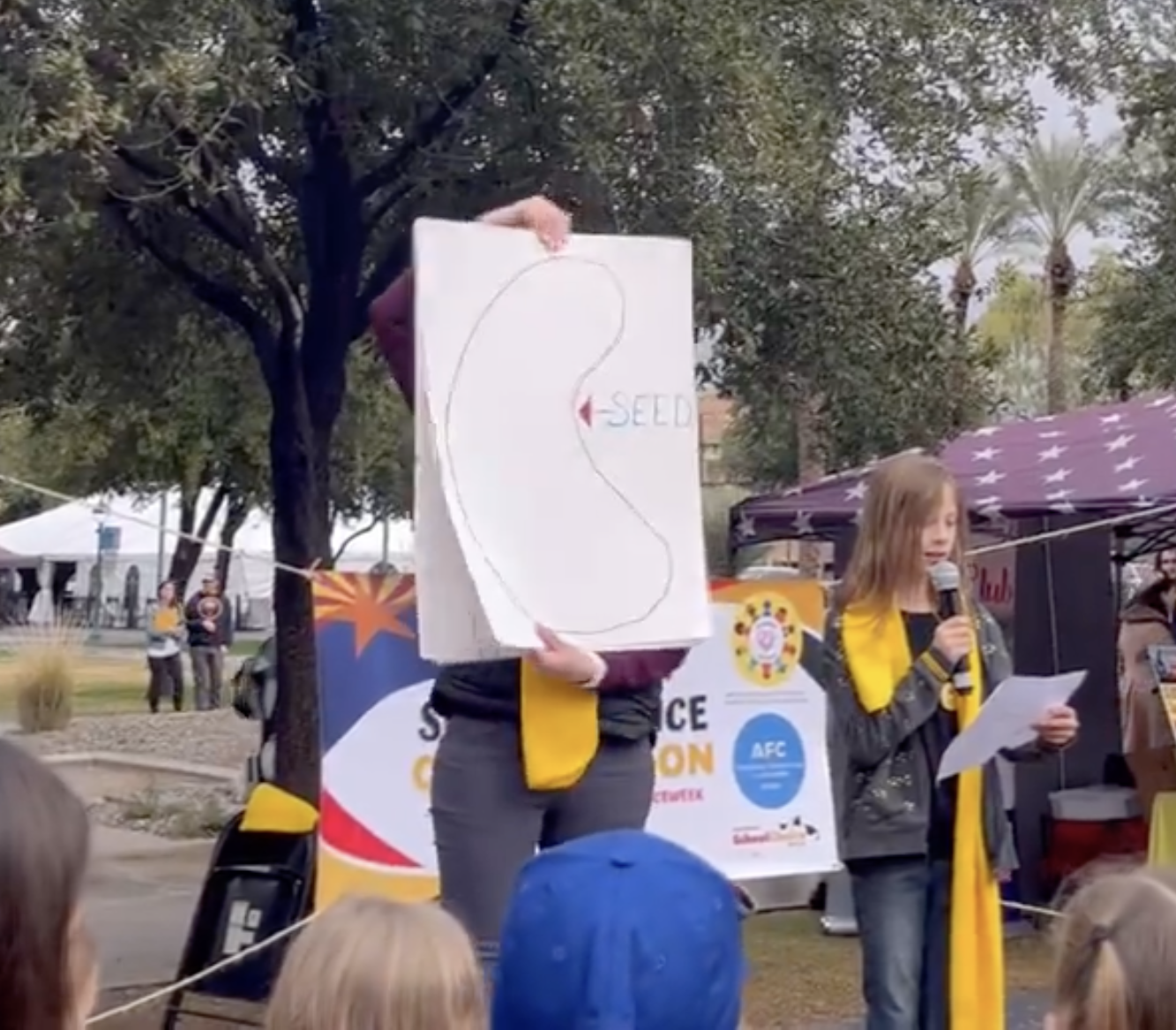Jump to: Top Tasks | From the Field | Key Resources | Moments of Resilience
It is week 202 in our new reality and we are wondering if the idea that the teaching profession is in crisis is increasingly at odds with the latest numbers on teaching in America.
“2023 was another good year for employment in public education,” writes Chad Aldeman in The 74. “Coming on the heels of big gains in 2021 and 2022, the country has now had the biggest three-year gain since the mid-1970s.” At the same time, “public education regularly has the lowest job opening rate among all major industries … for every 100 employees, schools were trying to hire 2.8 more. In comparison, the private sector as a whole had job opening rates twice as high. So did other state and local government employers.”
“There are other signs of progress in the education labor market as well,” Aldeman notes. “A RAND survey over the summer found teacher stress and anxiety levels were back to pre-pandemic levels.”
What does this mean for policy advocates? While the pandemic-era teaching workforce crisis is receding (and may not have been as worrisome as many feared), the pandemic-era student achievement crisis shows no signs of slowing down. As we debate how to spend the remaining federal funds–and what emergency programs to keep–we need to keep those student needs front and center in everything we do.
SUBSCRIBE
Last time in The New Reality Roundup, we looked at the push to make tutoring a permanent feature of the American education system and explored the upward trajectory of private school choice. This week, we follow up on tutoring with a look at progress in Louisiana and New Jersey and share the latest AdvocacyLabs video featuring Derrell Bradford.
TOP TASKS
Help state lawmakers see the dramatic benefit of tutoring
“Federal pandemic aid paid for a major expansion of tutoring across the U.S. As the money runs out, education officials and advocates are pushing for state legislators and schools to find a way to keep these programs going,” reports Kalyn Belshar for Chalkbeat. “There’s widespread agreement that lots of kids still need academic help, and schools need to provide it. But the big question is: Where will the money come from?”
To look for potential answers to that question, Belshar followed the work of two executive directors of the 50CAN Network in their fight to make tutoring permanent: Louisiana Kids Matter Campaign’s Kelli Bottger and JerseyCAN’s Paula White, alongside interviews with our partners at Accelerate and FutureEd.
Belshar notes that states and districts have spent more than $3 billion of federal ARP/ESSER funds on building and expanding tutoring programs, putting their continuation and permanence at risk as the money runs out later this year. Despite the states’ different political leanings, she documents similar appeals being made to state legislatures: “Paula White, the executive director of the advocacy group JerseyCAN, is asking the state to keep paying for tutoring, too. As White tries to win lawmakers’ continued support, her plan is to emphasize the positive results that tutoring has produced and the state’s stagnant test scores — ‘Are we over the hump? Is the problem solved? And we know the answer to that is ‘no,’ she said.”
Even absent additional funding from the states, districts are looking to keep tutoring programs in place by cutting other non-essential or infrequently-used programs, contracts and learning software.
The urgency and importance is summed up by Accelerate’s Nakia Towns: “There is a lot of conversation about what strategic investments districts need to be making, and what should be prioritized,” she told Chalkbeat. “High-dosage tutoring has such an incredible payoff for kids,” she said, that it should be “right at the top of that list.”
THE TASK OF THE WEEK IS
AdvocacyLabs
Since 2019, 50CAN and FutureEd at Georgetown University have partnered together on AdvocacyLabs, where we explore what science can tell us about what makes for effective advocacy. Through this collaboration, we’ve issued seven reports that have helped advocates understand core lessons like the advantages of a vocal opposition, the different approaches to community organizing and a case study analysis of over 250 education advocacy campaigns.
Today, we’re releasing the second episode of our new video series “AdvocacyLabs: How to Change the World.” Featuring 50CAN President Derrell Bradford, the latest episode looks at how the most successful social movements always start small.
Please share this series with the changemakers you know and we’ll be back next month with another episode.
THE TASK OF THE WEEK IS
FROM THE FIELD
HawaiiKidsCAN announced a partnership with the Hawaii Public Library system to offer a series of digital literacy events for parents and students to learn about accessing tutoring programs and literacy support. Executive Director David Miyashiro also spoke on the need for greater charter facilities funding.
 Transform Education Now participated in the Colorado Charter School Advocacy Day at the State Capitol, where hundreds of students, partners, families and community leaders gathered to make the case for the benefit of providing more options to more students.
Transform Education Now participated in the Colorado Charter School Advocacy Day at the State Capitol, where hundreds of students, partners, families and community leaders gathered to make the case for the benefit of providing more options to more students.
New ConnCAN Executive Director Steve Hernández came out of the gate with strong words for Governor Lamont’s budget, which pulls $48 million from K-12 and redirects it to early childhood. “Last year, through a bipartisan budget, Connecticut leaders agreed to invest in our future,” he told the Connecticut Examiner. “This year, we must build on that promise to support more children, not fewer.”
Key Resources
The National Alliance for Public Charter Schools gathers together all of the legislative and political developments involving charters in various states across the country.
Success Academies’ Eva Moskowitz gives a wide-ranging interview to 92NY that covers topics from the evolution of charter school politics, the remarkable academic achievements of her students and how her network is investing in teachers.
The American Federation of Children and Club for Growth launched a federal education freedom pledge, which has already secured the signatures of 12 congresspeople, including Speaker of the House Mike Johnson.
Democrats for Education Reform is making progress on a science of reading bill in Massachusetts, including securing an alarming report on literacy in the Boston Globe.
Bellwether released a guide for non-profits to navigate a rapidly changing financial landscape in education and education philanthropy.
The Christensen Institute and VELA are out with a new report on the growing parental demand for microschools and other alternative forms of schooling.
Khan Academy’s Khanmigo AI tutor can now talk and read aloud, a major step forward in making the technology accessible and useful to all students.
Moment of Resilience
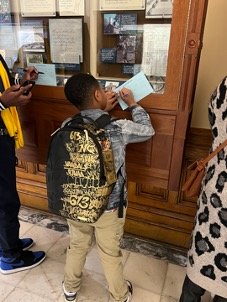
Dior Portis, a fourth grader from the TREAD Academy microschool in Georgia, leaves a message at the Capitol for legislators. To prepare for the trip, the microschool introduced principles of civic engagement and had students prepare speeches for lawmakers. Dior shared his desire for more students to have the opportunity to attend schools like his with a Democratic caucus leader. He secured a commitment from the congresswoman to visit his school before session is out.



